"Cherishing Little Steps - A Haven for Baby and Family Journeys"
Understanding the Montessori Method: Is It Right for Your Child?
As you dip your toes into the vast sea of educational approaches, the Montessori Method stands out like a beacon, offering a unique path for your child's learning journey.
But before you make a decision, it's important to understand the core principles and practices that underpin this approach.
An exploration of the Montessori Method might just unfold a world of possibilities for your child's growth and development, guiding you towards a choice that aligns with their individual needs and learning style.
Key Takeaways
- Montessori fosters independence and curiosity in children.
- Emphasizes personalized, hands-on learning experiences.
- Tailored to individual needs and promotes decision-making.
- Encourages a love for learning through practical life activities.
Origins of Montessori Education
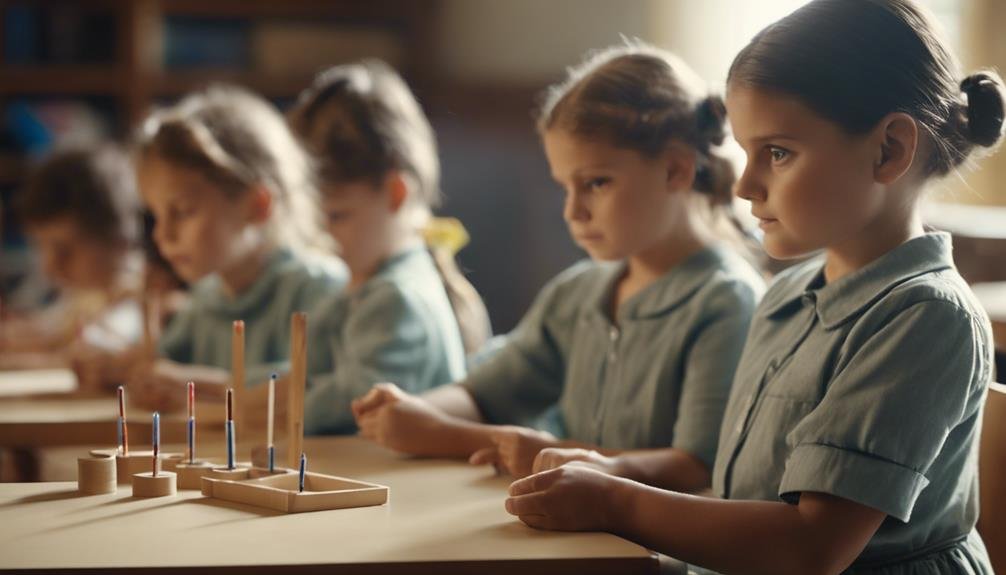
The origins of Montessori Education can be traced back to the early 20th century when Dr. Maria Montessori developed her innovative educational approach. Maria Montessori's philosophy focused on the belief that children are naturally curious and possess an innate desire to learn. She emphasized the importance of creating a prepared environment that allows children to explore and discover at their own pace, fostering independence and a love for learning.
Maria Montessori's work laid the foundation for what would later become known as the Montessori movement. This movement encompasses a holistic educational approach that values the development of the whole child – intellectually, socially, emotionally, and physically. The Montessori method emphasizes hands-on, experiential learning, individualized instruction, and mixed-age classrooms to promote collaboration and peer learning.
Understanding the origins of Montessori Education provides insight into the core principles that guide this educational approach. Maria Montessori's philosophy and the Montessori movement continue to shape modern education by prioritizing the child's natural development and fostering a lifelong love for learning.
Key Principles of Montessori
Exploring the foundational principles of Montessori Education sheds light on the framework that underpins this innovative educational approach. One key principle of Montessori is promoting child independence. This philosophy emphasizes fostering a child's ability to make choices and take responsibility for their learning journey. By encouraging independence, Montessori aims to instill confidence and self-reliance in children from a young age, skills that are invaluable throughout life.
Another fundamental principle of Montessori is hands-on learning. This approach prioritizes experiential learning through tactile experiences and manipulation of materials. Children engage with specially designed educational tools that allow them to explore concepts through touch and movement. This hands-on approach not only enhances understanding but also nurtures a child's natural curiosity and creativity.
Montessori Classroom Setup
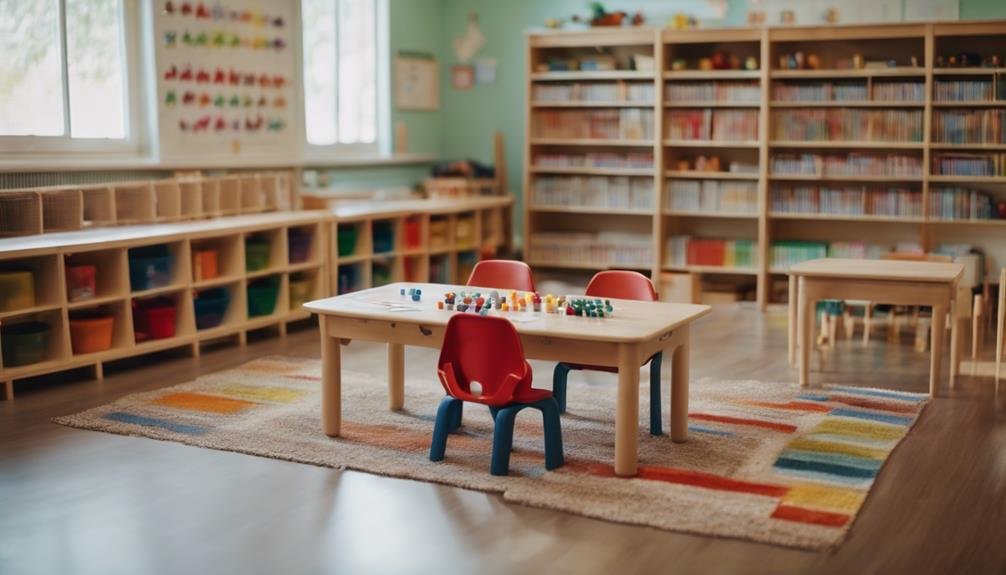
When setting up a Montessori classroom, careful consideration is given to the arrangement of materials and furniture to create an environment conducive to independent learning and exploration. The child-centered approach is evident in every aspect of the classroom setup. Desks and chairs are often replaced with low tables and floor mats to promote a sense of freedom and movement. Shelves are strategically placed at child height, displaying materials in an organized and inviting manner, encouraging hands-on learning experiences.
The Montessori classroom setup is designed to foster a sense of responsibility and independence in children. Each area of the classroom is thoughtfully arranged to cater to different learning areas, such as mathematics, language, practical life skills, and sensorial activities. This organization allows children to move freely, select activities that interest them, and work at their own pace.
The hands-on learning approach is emphasized through the use of specially designed materials that are self-correcting, allowing children to learn through exploration and discovery. The intentional setup of a Montessori classroom aims to cultivate a love for learning and a sense of empowerment in each child.
Role of the Montessori Teacher
In the Montessori method, the teacher plays an important role in guiding and facilitating the child's learning journey. Teachers in Montessori classrooms undergo specialized training to understand not just the curriculum but also the philosophy behind it. This training equips them with the skills needed to observe each child's unique learning style and interests. Through classroom observation, teachers can tailor their approach to meet the individual needs of each student, fostering a personalized learning experience.
Teacher training in Montessori education focuses on cultivating an environment where children can explore, discover, and learn at their own pace. By observing how children interact with the materials and each other, teachers can provide guidance when necessary, allowing the child to take the lead in their learning process. This approach empowers children to develop independence, critical thinking skills, and a love for learning. The role of the Montessori teacher isn't just to impart knowledge but to nurture a lifelong passion for education in each child.
Benefits of Montessori Education
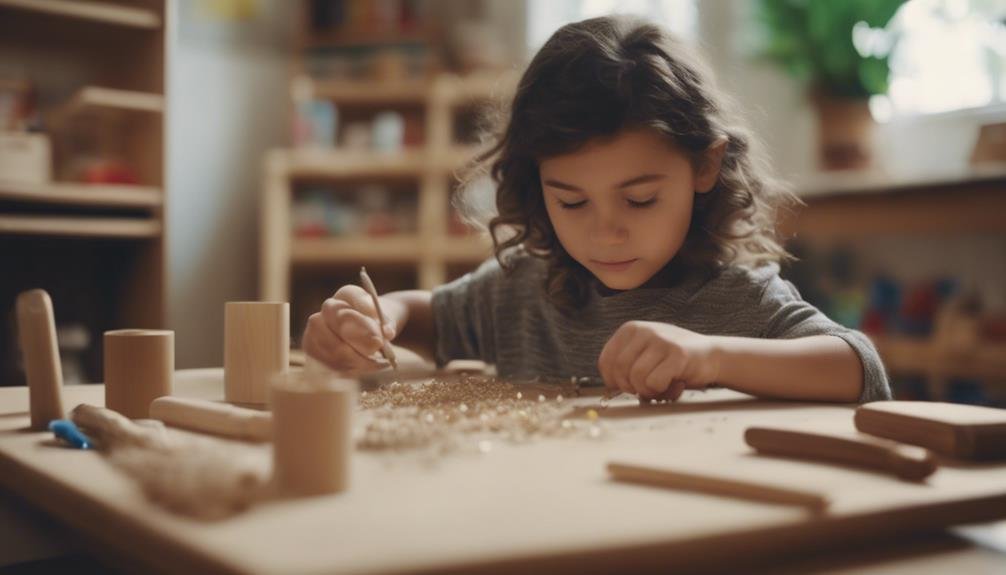
One of the notable advantages of Montessori education lies in its emphasis on fostering independent learning skills. Montessori classrooms offer a unique approach that focuses on individualized learning and a hands-on methodology. Here are some key benefits of Montessori education:
- Child-Centered: Montessori education is centered around the child's needs and interests, allowing them to explore subjects at their own pace.
- Independent Learning: Students are encouraged to take ownership of their education, making choices and decisions that contribute to their learning process.
- Hands-On Approach: Learning through tactile experiences helps children better understand concepts and retain information.
- Individualized Learning: With small class sizes and personalized lessons, each child receives the attention and guidance they need to thrive academically.
Montessori education fosters a supportive environment where children can develop a love for learning and build essential skills that will benefit them throughout their academic journey.
Montessori Vs. Traditional Education
Comparing Montessori education with traditional schooling reveals distinct differences in their approaches to fostering learning and development. The Montessori approach, based on Maria Montessori's educational philosophy, emphasizes independence, self-directed learning, and hands-on experiences. In a Montessori classroom, children have the freedom to choose their activities and work at their own pace, fostering a sense of responsibility and autonomy from an early age.
In contrast, traditional education often follows a more structured curriculum with teacher-led instruction and standardized assessments. While traditional schooling focuses on group learning and conformity to set standards, Montessori education values individuality and personal growth. The Montessori approach encourages children to explore their interests and learn through exploration, promoting a love for learning that extends beyond the classroom.
Montessori Materials and Activities
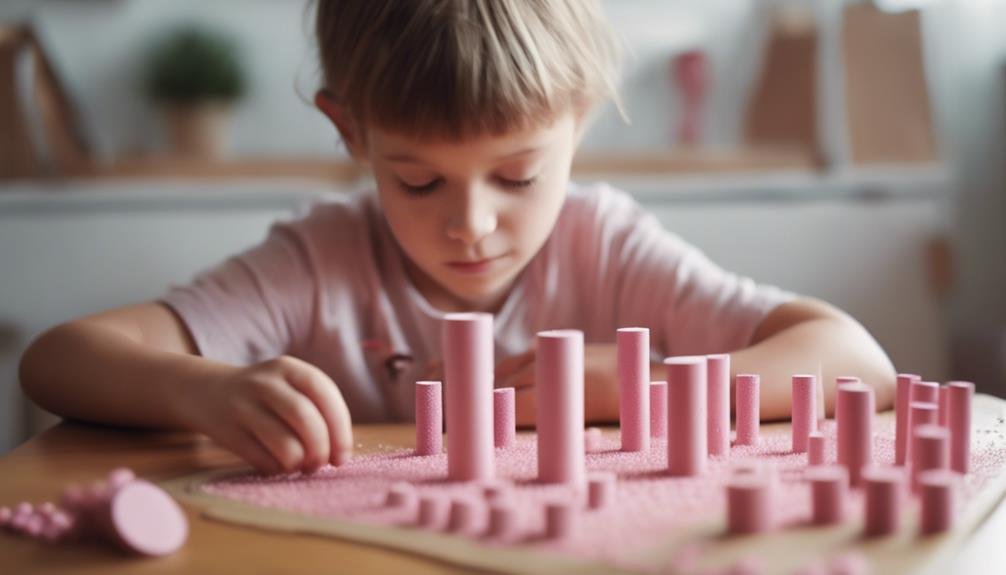
Materials and activities in Montessori education play an important role in facilitating hands-on learning experiences for children. In a Montessori classroom, the environment is carefully curated to promote sensory exploration and hands-on learning. Here are some key elements that make Montessori materials and activities unique:
- Multi-Sensory Materials: Montessori materials are designed to engage multiple senses simultaneously, enhancing the learning experience.
- Self-Correcting Activities: Children are encouraged to work independently with materials that provide immediate feedback, allowing them to learn from their mistakes.
- Sequential Learning: Activities are presented in a specific order to build upon previously acquired skills, promoting a natural progression of learning.
- Practical Life Activities: These activities focus on everyday tasks like pouring, sorting, and cleaning, helping children develop fine motor skills and independence.
Through these carefully crafted materials and activities, Montessori education nurtures a child's innate curiosity and fosters a love for learning through hands-on exploration.
Supporting Your Child at Home
To best support your child's Montessori education at home, create a designated learning space that mirrors the organized and hands-on environment of a Montessori classroom. Setting up a home environment that promotes independence is essential.
Arrange shelves with educational materials at your child's reach, allowing them to choose activities independently. Encourage parent involvement by observing your child during play and identifying their interests to provide relevant learning opportunities.
Engage in activities that foster practical life skills like pouring, sorting, and cleaning, as these align with Montessori principles. Encourage your child to take responsibility for their space by involving them in tidying up and organizing materials.
Montessori Assessment and Progress
When evaluating your child's progress in a Montessori environment, it's important to focus on individual growth and development rather than traditional standardized measures. Montessori schools employ unique assessment methods and progress tracking techniques that prioritize the holistic development of each child. Here are some key points to take into account:
- Observational Assessments: Teachers closely observe and document each child's interactions, interests, and progress in various activities.
- Self-Assessment Opportunities: Children are encouraged to reflect on their own work and set personal goals, fostering independence and self-awareness.
- Portfolio Building: Students compile portfolios showcasing their work, allowing them to track their progress over time and reflect on their learning journey.
- Parent-Teacher Collaboration: Regular communication between parents and teachers ensures a thorough understanding of the child's development and allows for collaborative support.
Montessori for Different Learning Styles
In catering to diverse learning styles, the Montessori approach emphasizes individualized instruction and hands-on experiences to promote effective learning outcomes. This method acknowledges that each child has unique learning preferences and adapts the curriculum to suit diverse learners. By providing a tailored learning experience, Montessori schools foster an environment where children can thrive based on their individual needs and strengths.
| Individualized Approach | Adaptive Curriculum |
|---|---|
| Recognizes unique learning styles | Adjusts teaching methods based on student needs |
| Tailors instruction to each child | Offers a variety of materials for different learning styles |
| Encourages self-paced learning | Allows for flexibility and exploration |
| Promotes independence and decision-making | Supports a range of abilities and interests |
| Focuses on holistic development | Incorporates real-life experiences into the curriculum |
With an emphasis on customization and flexibility, Montessori education caters to the varied learning styles of children, ensuring a nurturing and inclusive environment where every child can flourish.
Making the Decision: Is Montessori Right?
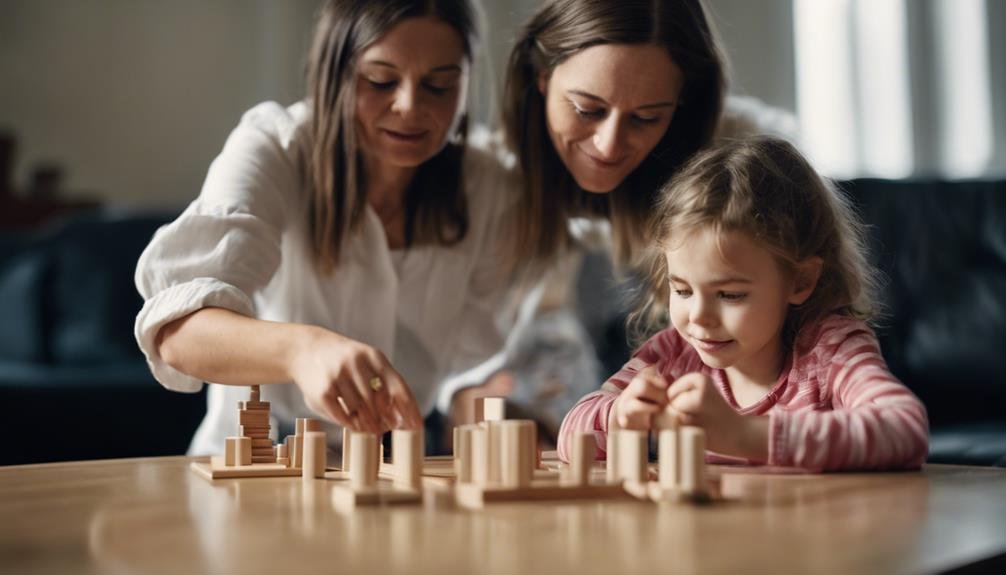
Considering the educational needs of your child and the principles of the Montessori method can help you evaluate if Montessori schooling is the right fit for your family. When making this decision, it's important to explore alternatives and take into account various parent considerations. Here are some key points to ponder:
- Personalized Learning: Montessori offers individualized learning experiences tailored to your child's pace and interests.
- Hands-On Approach: The method emphasizes hands-on learning, promoting practical skills and independence.
- Community Atmosphere: Montessori schools often foster a sense of community and collaboration among students.
- Long-Term Goals: Consider how Montessori aligns with your child's long-term educational and personal development goals.
Reflect on these aspects while contemplating if Montessori is the right choice for your family. By analyzing these factors and understanding how they align with your child's needs, you can make an informed decision that best supports their growth and learning journey.
Frequently Asked Questions
Can Children With Special Needs Thrive in a Montessori Environment?
In a Montessori environment, children with special needs can thrive. They benefit from individualized support and an inclusive atmosphere that values each child's unique abilities. Such an approach fosters growth and a sense of belonging.
How Can Parents Incorporate Montessori Principles Into Their Daily Routines at Home?
Feeling lost in the Montessori maze at home? Start small. Integrate Montessori activities into daily routines. Let your child lead, encourage independence. Engage with purpose. Your involvement is key to nurturing growth.
Are There Any Specific Qualifications or Certifications That Montessori Teachers Should Have?
When it comes to Montessori teachers, qualifications and certifications are essential. Montessori teachers should hold specific Montessori credentials to guarantee they meet the requirements and standards set forth by Montessori educational principles.
How Does Montessori Education Address the Social and Emotional Development of Children?
In Montessori education, social skills are fostered through collaborative activities, promoting empathy. Children learn emotional regulation through self-directed choices, leading to better conflict resolution. This approach encourages holistic growth by nurturing both social and emotional development.
Are There Any Potential Drawbacks or Challenges Associated With Montessori Education That Parents Should Be Aware Of?
Parent involvement in Montessori education is vital but can be a challenge for busy schedules. Classroom dynamics may vary, impacting your child's experience. Teacher training and curriculum adaptation are key factors to ponder for a successful Montessori journey.
Conclusion
To sum up, the Montessori method offers a unique and child-centered approach to education that focuses on individual growth and development.
By understanding the key principles and benefits of Montessori education, you can make an informed decision on whether it's the right fit for your child.
Remember, just like Maria Montessori herself, you have the power to create a learning environment that nurtures your child's natural curiosity and love for learning.


